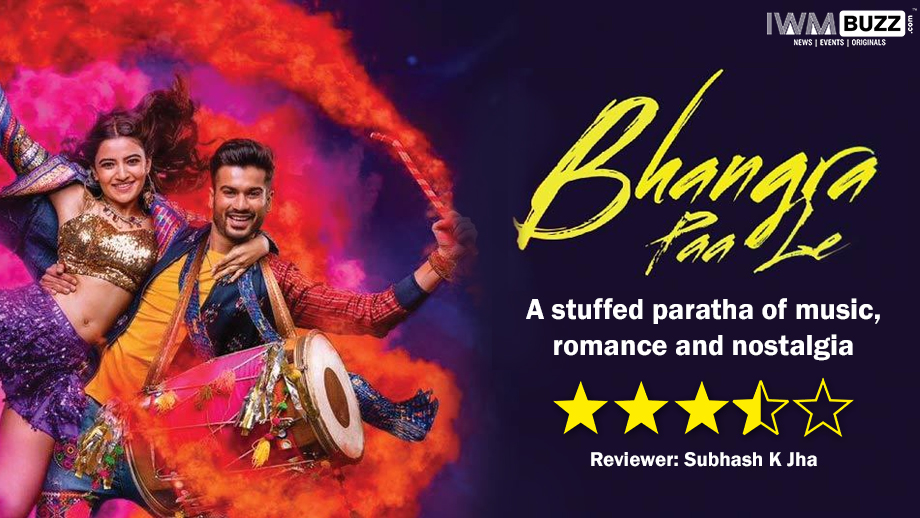Starring Sunny Kaushal, Rukhsar Dillon, Shriya Pligaonkar
Directed by Sneha Taurani
Rating: *** ½ (3 and a half stars)
A swirl of colours in two different palates, if you please, assails your senses as you settle down on your seats to watch Vicky Kaushal’s kid-brother Sunny dance, romance and emote with a confidence that belies his lack of experience.
Young Sunny Kaushal has done a couple of films earlier. But Bhangra Paa Le (BPL) is his real debut. The young actor’s verve and his stealthy Bhangra moves which plaster the frames will have you jumping out of your seats to romance the rhythm of the utterly infectious and music.
(A word of advice: watch this big bustling rhythm explosion for Netflix flick on the large screen, not on your phone or computer).
It’s been ages since I enjoyed the music of a Hindi film as much as this. The narration, almost a flouncy fluid pretext for one Bhangra item after another just flies by, barely giving us a chance to feel the absence of gravity and heft. As the rumbustious beats of the Bhangra pervade every nook and corner of narration—what does the hero do when the stern aggressive relatives of his loved one turns on him after he asks for her hand? He breaks into a smooth Bhangra performance, of course!—we are transported to the best of traditions of commercial Hindi cinema where every emotion is amply expressed through song and dance.
Not that Bhangra Paa Le doesn’t have its share of problems. The narrative glides through two-time dimensions, one during World War 2 (and here I must praise the writers for giving us the only Colonial Gora in Hindi cinema who is not as an ass) and the other in the present. In both Bhangra plays a major part in resolving an emotional crisis.
Both the time dimensions bundle of bridled verve the young spontaneous Sunny Kaushal as different protagonists faced with similar choices in life. In drawing parallels, the two plots tend to stretch their coherence level. But Kushal’s romance in the past (with Shriya Pilgaonkar) works a lot more effectively than in the present.
The heroine Rukhsar Dhillon is pretty and vivacious. But her part never goes beyond her querulous conceits. Her conflicts remain eclipsed by Sunny Kaushal’s dwarfing presence. A hasty attempt to give Ms Dhillon’s character a back-story backfires, with Samir Soni bumping into his estranged daughter on London’s Heathrow.
The sequence is so out of place I felt like the child who tugs at Samir Soni’s hands impatiently. Or better still, just break into a Bhangra to get over the awkwardness of the less developed plot points, yes? I wish there was more of Sheeba Chadha as the heroine’s mother. She is an actress who can light up even the most dead scene with her intuitive wisdom.
The supporting cast is otherwise just there to dance when needed. They are really not important to the plot’s scheme of swings. Every time Sunny Kaushal hits the floor there is magic on the screen. It won’t be erroneous to say, a star is born.


